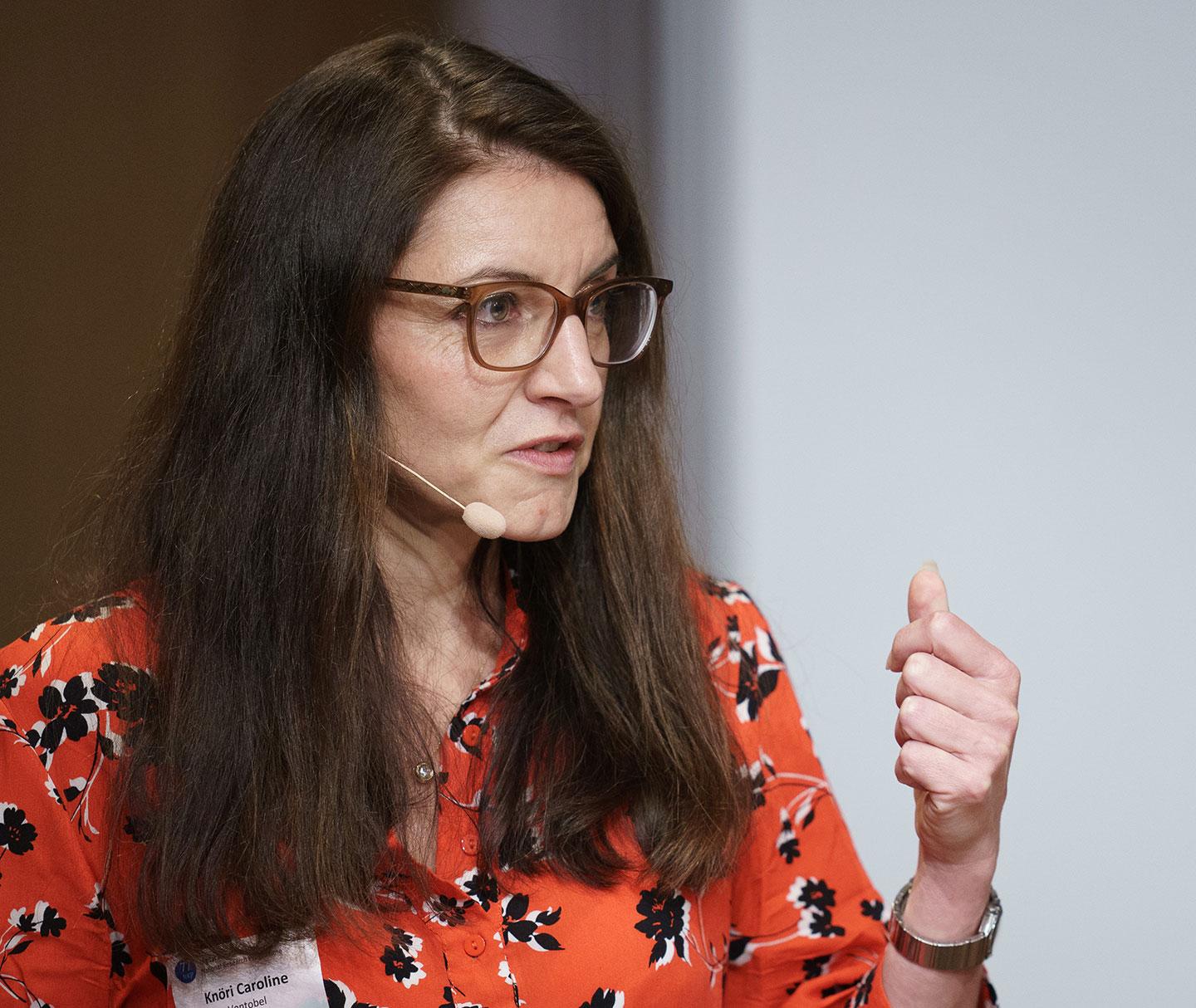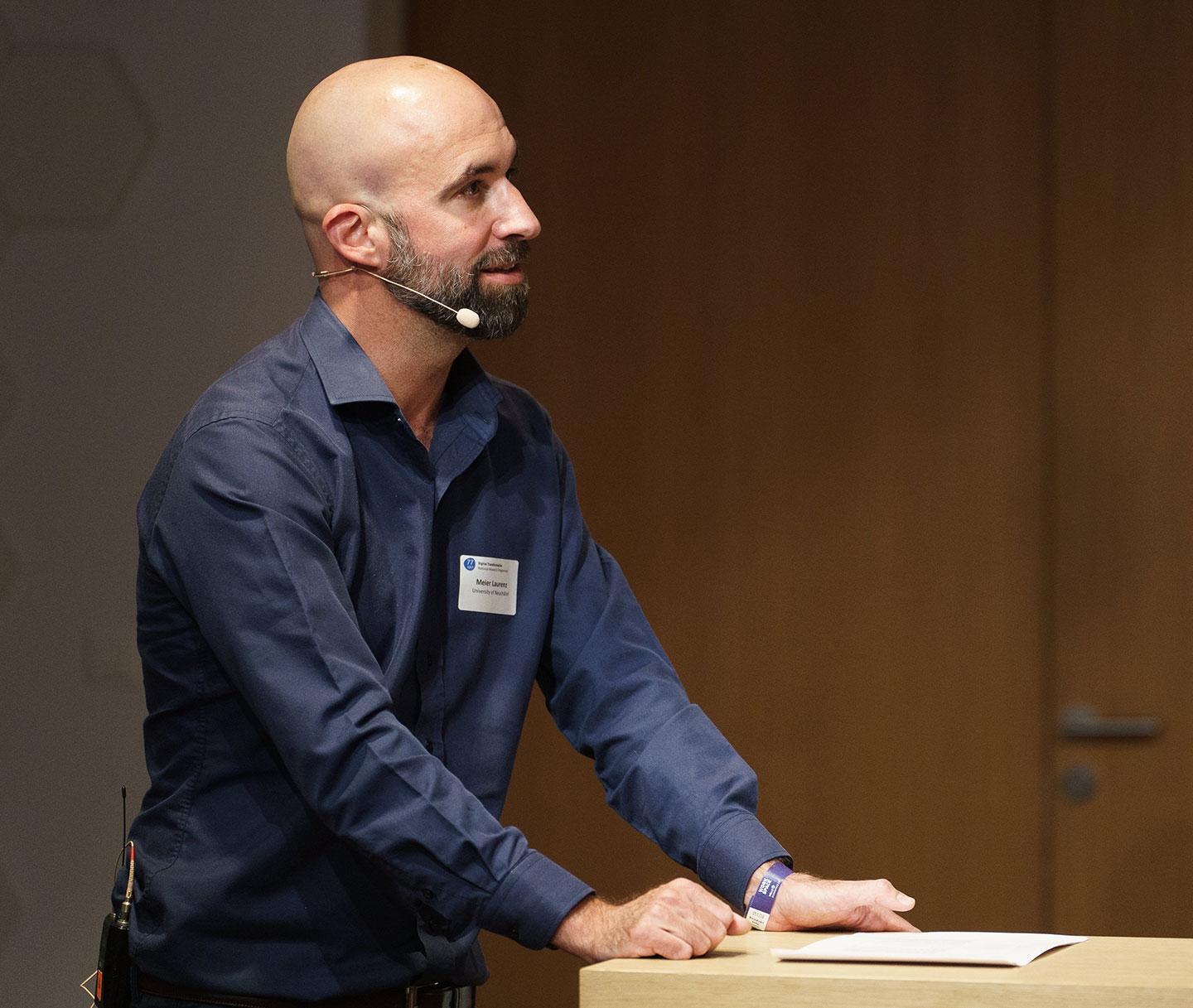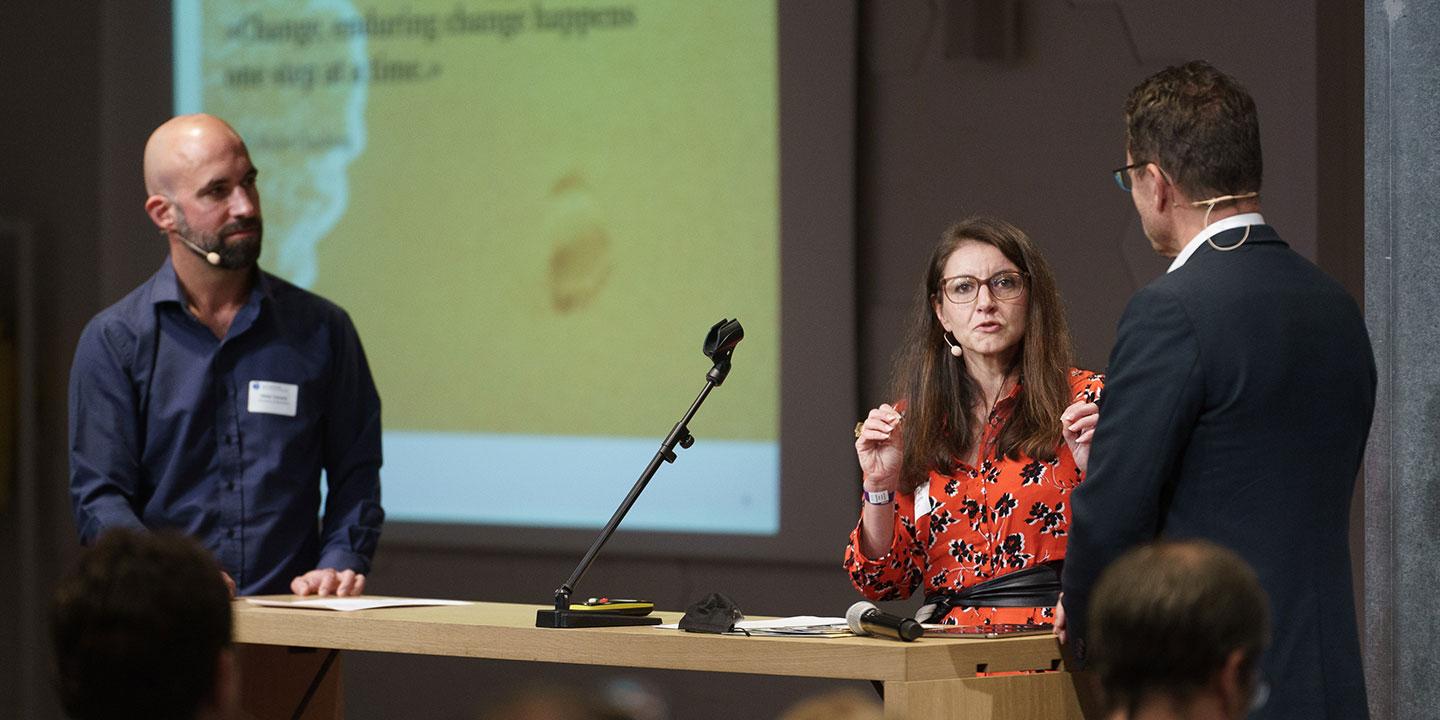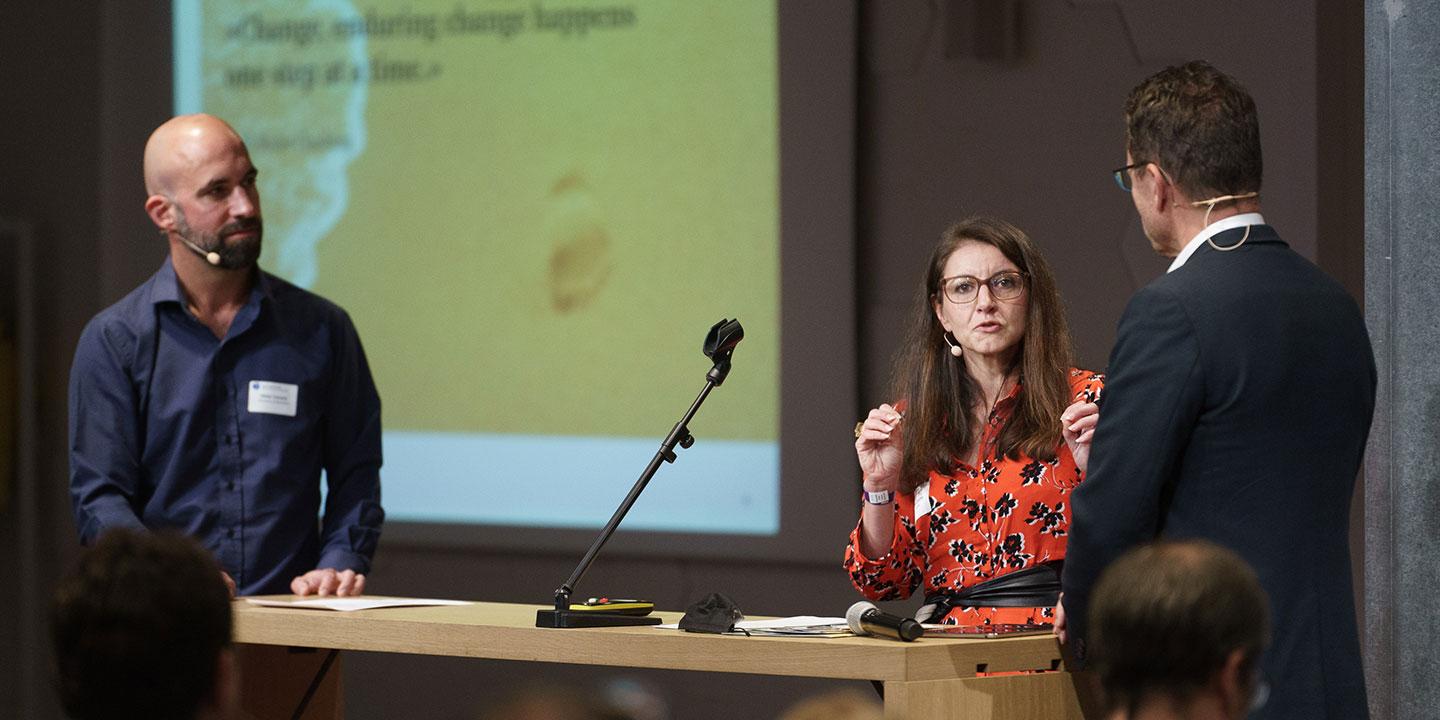Digital, successful and happy? Tips for the new world of work

More freedom and flexibility: is digitalisation making the world of work easier and better? In reality, the new opportunities come at a price.
Relaxing chairs, slides and table football: we all know the pictures of the various Google offices where employees meet, relax and inspire each other. As head of HR, Caroline Knöri helped shape the working conditions at Google for seven years. She knows that despite all the freedoms, which are due in no small part to digitalisation, it's the results that ultimately count. For example, the company expected weekly progress reports from her and her colleagues, and her own performance as a leader was assessed semi-annually by her team.

The tech giant Google is no longer alone in offering very flexible working conditions; at least since the corona lockdown in 2020, the option of working from home has become a reality in most areas. Does this mean the employer loses control and has to place unlimited trust in employees without any guarantees? Caroline Knöri, who is now Head of HR at the investment group Vontobel, differentiates: "Since the financial crisis of 2008 at the latest, we have begun to rethink the word 'trust' in the world of work. The basic requirement is to believe in the good in people. At the same time, it's still important to send strong signals, always stay vigilant and ask questions. This provides a framework within which trust and cooperation can work."


"That all sounds very well," says Laurenz Meier, Professor of Work and Organizational Psychology at the University of Neuchâtel, "but often the rules of the game are not so clear to employees. They wonder: if I work from home, do I have to answer emails even at ten o'clock in the evening? Do flexible working hours mean that I have to be available all the time? Am I entering a grey area if I run the washing machine while I’m working?". If such issues are not clearly regulated, Meier says, the task of finding a balance between the company's interests and individual needs is simply passed on to the employees. As a consequence, Meier has observed in his research, they feel as if they were in a grey area in which the roles are blurred.
It's all a question of communication, Knöri counters. And admits that digitalisation and widespread working-from-home have increased the need for communication enormously. "Other than that, I'm not sure if companies expect more from their employees today than they used to," Knöri says, "but our understanding of successful collaboration has certainly changed." The formula "I give you my time, you give me money in return" no longer applies. Because employees don't see themselves as "passengers" in the company; instead they want to be involved and challenged and to see development opportunities for themselves.


Employees in management positions are increasingly becoming the focus of both HR departments and academic researchers. On this the HR manager and the researcher agree: leaders at all levels play a key role in today's workplace. In addition to their actual job, they also ensure that the needs of the company and those of the employees are met. At the same time, they need to motivate and inspire their teams, because ultimately it's performance that counts for companies.
NRP 77 project: Omnipresent work: how to separate job and private life
After a sometimes difficult start to the research phase due to the pandemic, practically all projects have picked up speed and in many cases have even produced their first interim results. This was the time to bring together for the first time research and practice, to whom the results of a National Research Programme are addressed. At the first programme meeting, personalities from the circle of stakeholders formulated their theses, questions and expectations of NRP 77. Researchers reflected and countered. All in all, it was a day of intensive exchange.
